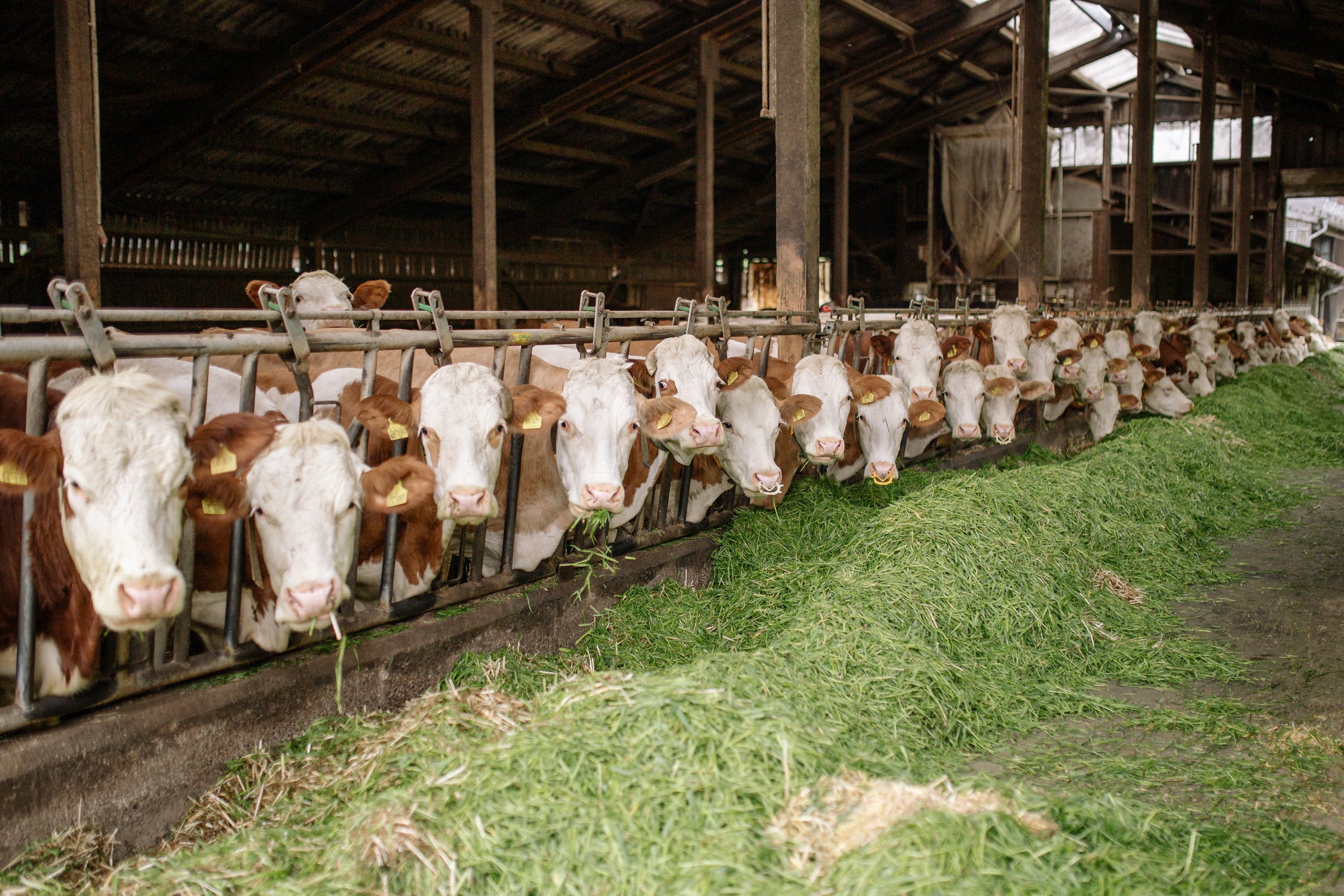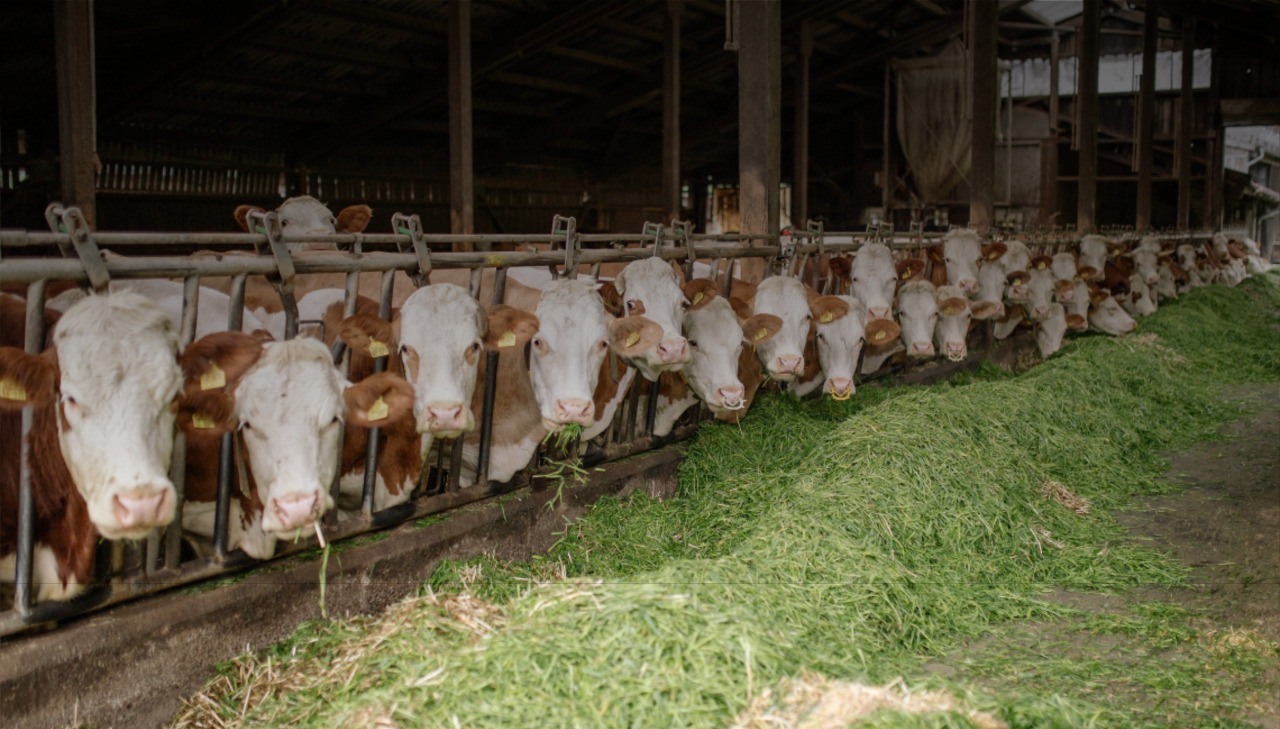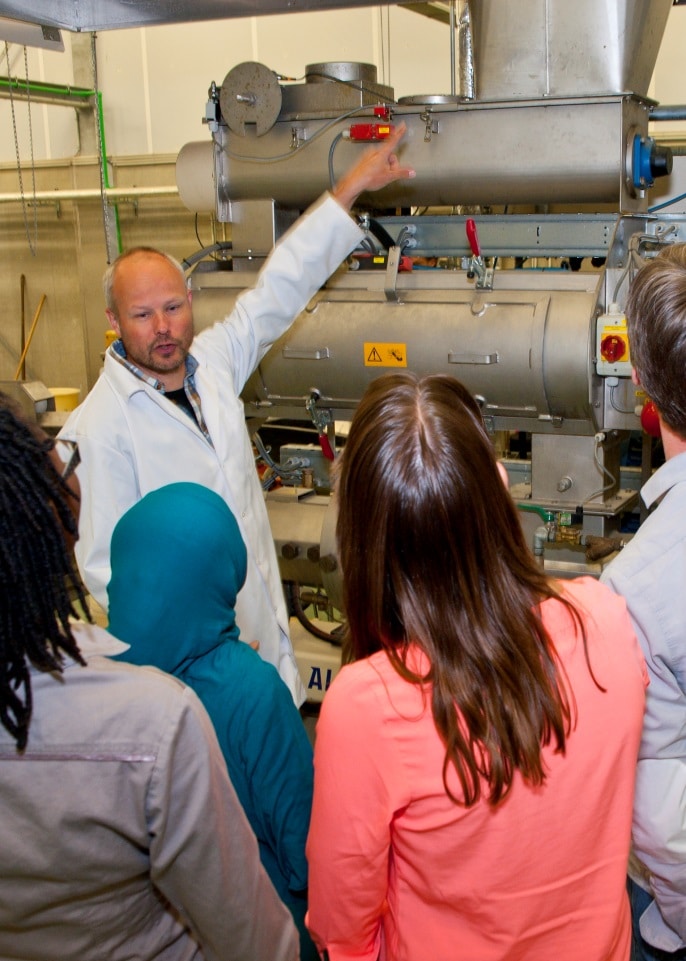2. Completed Projects
3. Detailed information of the completed projects
Breaking behaviour of diet ingredients, equivalent particle size and its relation with animal performance.
Dr A.F.B van der Poel, Wageningen University & Research, Department of Animal Sciences, Animal Nutrition group, Wageningen, The Netherlands
As a result of particle size reduction of dietary ingredients in the animal feed industry, it has been established that analysing the size of particles is not sufficient to explain differences in the digestibility or growth performance of animals. A better understanding the breaking behaviour of various feed ingredient and the ability to describe this behaviour via mathematical models is, therefore, of paramount importance to improve animal performance. Such model relating animal in vivo parameters to breaking behaviour of feed ingredients can then be used in the optimization of the milling process.
This research into breaking behaviour of ingredients and the equivalent particle size is very innovative and of great value for the international animal feed industry. Moreover, the suppliers of feed mills and devices for particle size reduction of feed materials will benefit from the results of these studies. By understanding the relationship between the equivalent particle size with ileal digestibility data in pigs and poultry for dry matter, crude protein, crude fat and carbohydrates, the formulation of complete diets can be more precise in the future.
Finally, the suppliers of equipment for the grinding of feed ingredients and pelleting of diets will be able to fine tune their processes to the desired feed quality physical requirements. In addition to the process of pelleting, this also applies for the extrusion processes in fish and pet feed manufacturing.
In a forthcoming PhD project, a literature review will be written and published to obtain a clear picture of the relationships between nutrient digestibility and particle size in diet ingredients for pigs and/or poultry.
A number of technological experiments will be conducted to establish the effect of grinding conditions on the particle size distribution and equivalent particle sizes of the resulting ground materials. A precise analysis of the breaking behavior will be executed and data analysis will analyze the size and further derivative physical quantities. A new mathematical model will be established that better describes breaking behaviour as related to physiological effects in vivo.
Finally, a better predictability of nutrient digestibility from the physical data of ground ingredients will be examined in pigs and/or poultry.
CVB
CVB is a program, originally founded in the Netherlands, but currently supported by a large group of stakeholders in the Dutch and Belgian feed and livestock chain. CVB evaluates feedstuffs and establishes energy and nutrient requirements for farm animals. CVB feed evaluation systems are science-based and transparent. Main activities of CVB are:
- Data collection on chemical composition of feedstuffs and feed materials
- Collection of data on digestibility of feedstuffs for different farm animal categories
- Development and updating of feed evaluation systems for farm animals, and of energy and nutrient requirements
The main deliverable of the CVB activity is the CVB feed table. This table includes information on the chemical composition of feedstuffs (compound feedstuffs, high moisture industrial co-products, roughages and some minerals). Variation in chemical composition is indicated, as well as the digestibility of nutrients. Moreover, feed evaluation systems for ruminants, pigs, poultry, rabbits and horses are described. Energy and nutrient requirements for farm animals are given in additional booklets per animal category. A more detailed background information on different aspects of feed evaluation systems and nutrient requirements is given in documentation reports.
The CVB feed table, as well as the other CVB publications can be downloaded at www.cvbdiervoeding.nl. Publications and tools available at the CVB website are available for free, and can be used as a reference and benchmark by different user groups (such as feed producing companies, consultants, farmers, education and research institutes). Wageningen University & Research (the Netherlands) and ILVO (Belgium) are executing the program, supported by a technical committee with animal nutrition experts from different stakeholders.
Breaking behaviour of diet ingredients, equivalent particle size and its relation with animal performance.
Dr A.F.B van der Poel, Wageningen University & Research, Department of Animal Sciences, Animal Nutrition group, Wageningen, The Netherlands
As a result of particle size reduction of dietary ingredients in the animal feed industry, it has been established that analysing the size of particles is not sufficient to explain differences in the digestibility or growth performance of animals. A better understanding the breaking behaviour of various feed ingredient and the ability to describe this behaviour via mathematical models is, therefore, of paramount importance to improve animal performance. Such model relating animal in vivo parameters to breaking behaviour of feed ingredients can then be used in the optimization of the milling process.
This research into breaking behaviour of ingredients and the equivalent particle size is very innovative and of great value for the international animal feed industry. Moreover, the suppliers of feed mills and devices for particle size reduction of feed materials will benefit from the results of these studies. By understanding the relationship between the equivalent particle size with ileal digestibility data in pigs and poultry for dry matter, crude protein, crude fat and carbohydrates, the formulation of complete diets can be more precise in the future.
Finally, the suppliers of equipment for the grinding of feed ingredients and pelleting of diets will be able to fine tune their processes to the desired feed quality physical requirements. In addition to the process of pelleting, this also applies for the extrusion processes in fish and pet feed manufacturing.
In a forthcoming PhD project, a literature review will be written and published to obtain a clear picture of the relationships between nutrient digestibility and particle size in diet ingredients for pigs and/or poultry.
A number of technological experiments will be conducted to establish the effect of grinding conditions on the particle size distribution and equivalent particle sizes of the resulting ground materials. A precise analysis of the breaking behavior will be executed and data analysis will analyze the size and further derivative physical quantities. A new mathematical model will be established that better describes breaking behaviour as related to physiological effects in vivo.
Finally, a better predictability of nutrient digestibility from the physical data of ground ingredients will be examined in pigs and/or poultry.
Home Office compliant metabolism cages for poultry feed evaluation studies
SRUC (Scotland’s Rural College) is a widely respected higher education institute dedicated to producing specialist research, delivering high quality education and providing comprehensive consultancy services in the rural sector within the UK and beyond.
SRUC’s Monogastric Science Research Centre (led by Prof. Jos Houdijk) is a focus for the College’s work on pigs and poultry, in particular bringing together vital research on nutrition.
The most appropriate way of assessing the nutritional value of feedstuffs, or interventions affecting the nutritional value, is by feeding either known quantities of feed or digestibility-marker enriched feed to birds or growing pigs.
The gold standard equipment used for such assessment of nutritional value is the raised-floor cage, where samples can be collected in the absence of interference from bedding intake.
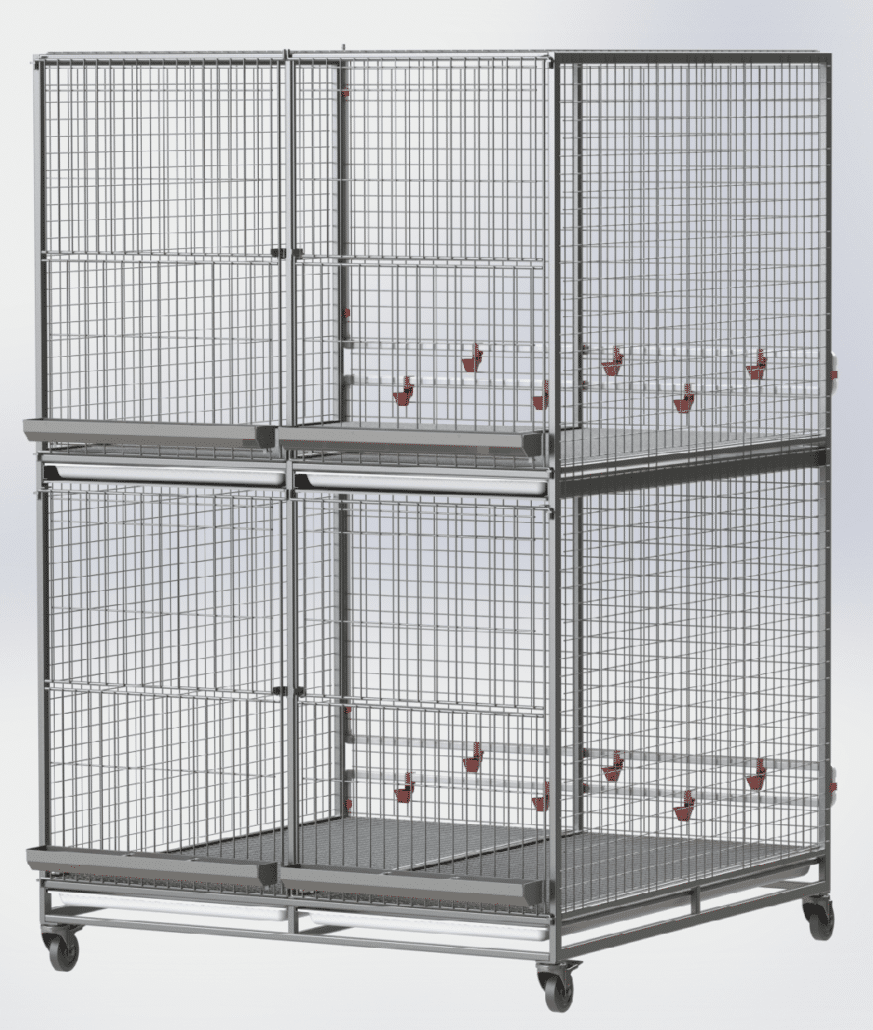
Traditional raised-floor cages no longer meet UK Home Office requirements. Therefore, SRUC set out to refurbish this facility accordingly, which resulted in a mobile, modular system that is EU directive compliant for birds. SRUC is grateful to VICTAM Foundation for sponsoring this activity, through which we will continue to serve UK, EU and world-wide feed industry with robust and much needed up-to-date feedstuff nutritional value data.
Victam Foundation supports dairy cow diet formulation in developing countries
Growing demand for balanced nutrition for dairy cows
Due to rising population and incomes, demand for milk and dairy products in developing countries is growing rapidly. For economic and environmental reasons, it is undesirable to expand the dairy herd. Raising milk yield per cow is a far better solution. Currently, dairy cows in the tropics often produce well below their genetic potential, especially where exotic dairy breeds or crossbreds have been introduced. Rapid gains in milk yield and in efficiency of conversion of feed into milk can be attained by improving their diet.
Diet formulation
Diet formulation can be a very effective means of identifying and correcting imbalances in supply and demand of nutrients such as energy, protein, fibre, starch and minerals. Software applications can make this tedious task much faster and easier. An example of very user friendly application is Rumen8 (www.rumen8.com.au) that was developed for use in Australia.
With a grant from the Victam Foundation, Rumen8 was adapted for use in East Africa and other developing countries in the tropics. In most tropical countries, the digestibility of feeds, in particular roughages such as stover, straw and hay of mature grasses is much lower than in temperate areas. The high fibre content of such feeds limits feed intake of the cows, so it is important to introduce more digestible feeds such as maize silage and well-managed fodder crops such as Brachiaria and young Napier grass.
Field testing
The ‘tropicalised’ Rumen8 diet formulation package was piloted in about 25 medium (20 -100 cows) and 5 large scale (100-500 cows) dairy farms in Kenya by the Kenya Market-led Dairy Programme (KMDP). KMDP is implemented by SNV-Netherlands Development Organisation and is funded by the Netherlands Embassy in Nairobi (www.cowsoko.com/KMDP). KMDP’s mission is to enhance the professionalism and competitiveness of the Kenyan dairy sector. The project works with smallholders as well as medium and large scale farmers. Users of Rumen8 are dairy cattle extension workers/advisors and nutritionists. For diet formulation software to benefit dairy farmers, it was found that the user needs to have a sound knowledge of dairy cow nutrition. The dairy advisors receive training in dairy cow nutrition and diet formulation from experts from PUM (Netherlands Senior Experts) and ProDairy EA Ltd based in Nairobi, as well as support from the Australian Rumen8 developers. This is facilitated and coordinated by KMDP.
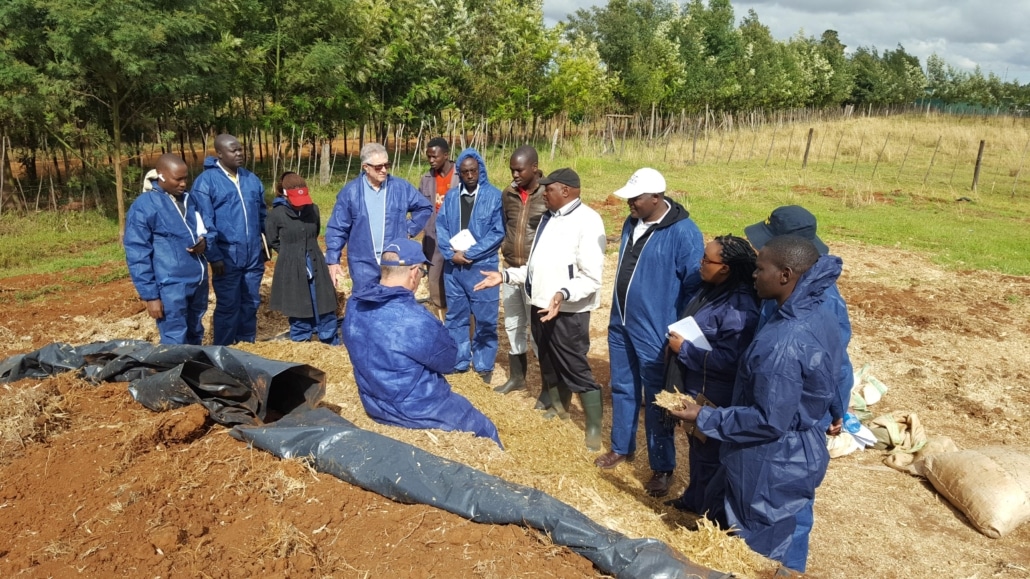
Feed library
The Rumen8 software can be downloaded free of charge from www.rumen8.com.au. It comes with a feed library of about 250 Australian fodders and feeds that can be modified or added to. However, feed ingredients and especially roughages in the tropics have lower nutritive values for metabolisable energy and crude protein, and higher levels of fibre. Therefore, users in the tropics have to either analyse their own feeds, which is preferred, or look up relevant feed data in publicly accessible feeding tables or scientific publications. In the absence of feed analysis, and reliable local feed testing laboratories, it is advisable to consult several feed databases and calculate mean values. In Kenya, this is how the team of dairy advisors works. As a starting point they use their own Sub-Saharan Africa Feed Library which contains average nutritive values that were calculated from about ten published sources. Depending on visual assessment on farm, the nutritionist adjusts the values below or above those in the feed library to better match the local feeds.
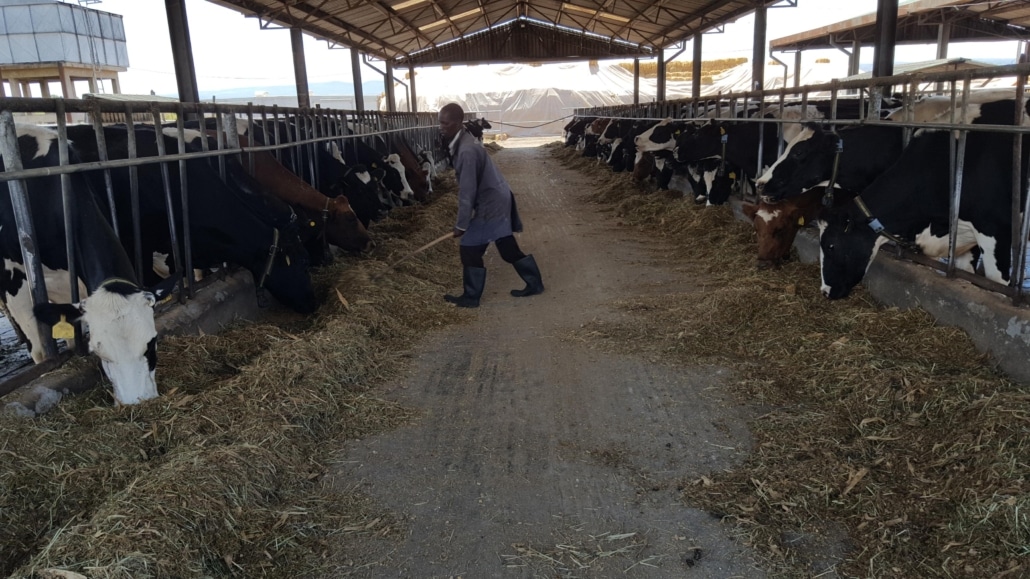
Margin above feed costs
The Kenyan team has found the Rumen8 software is very helpful in diagnosing and correcting shortcomings in the dairy cow diets used by their clients. The dairy advisors insist on using it during farm visits and prior to any calculation they inspect the herd’s health, body condition and milk yield. Moreover, they visually evaluate all feeds available on the farm, both qualitatively and quantitatively. Then they enter into Rumen8 the current milk price and the price of all available feeds as well as any feeds that can be bought in sufficient quantities to be useful. Finally, Rumen8 calculates the optimum diet that gives the highest Margin Above Feed Costs. The bottom line, therefore, is how much money a farmer receives after subtracting all feed costs from the milk revenue. From this margin the farmer pays other costs such as labour, veterinary costs, depreciation and utilities. What is left over is profit.
Roll out
Rumen8 enables formulation of balanced diets that lower the cost-price of milk and improve productivity and farm profitability. It is also an excellent teaching aid for training students in dairy cow nutrition. SNV plan to roll out this approach to using Rumen8 , together with other agencies, to projects in Ethiopia, Uganda, Rwanda, Tanzania and Zambia. Deployment in South-east Asian countries is also being investigated. Considerable training is needed before new users are conversant with Rumen8 as formulating safe diets requires a good working knowledge of dairy cow nutrition.
New ways to evaluate foods for our companion dogs and cats
The health and longevity of pet dogs and cats is maintained by the quality of the foods their owners provide. The foods need to contain all the necessary nutrients, have an excellent palatability as well as being safe and easy to use. Currently, pet foods are evaluated with the assistance of ‘kennel’ dogs and cats. The latter is of increasing ethical concern in our society and one can question in how far they represent our active, modern day dogs and cats who live with their owners.
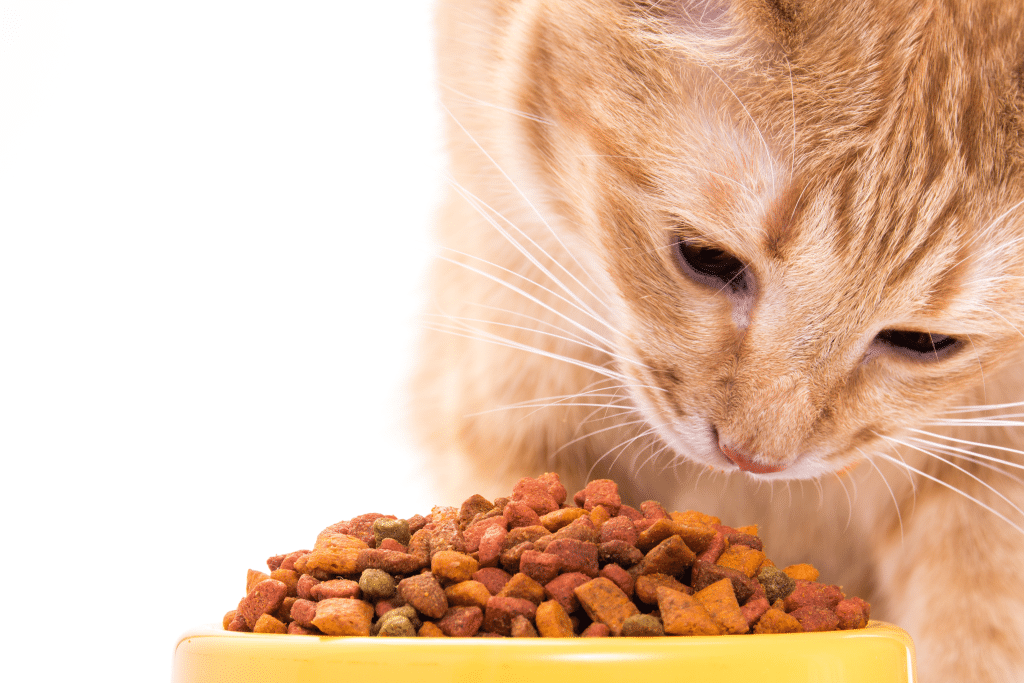
This 4-year research project aims to develop ‘in-house’ tests in which owners and their pets evaluate pet foods together with researchers. The new test protocols will be evaluated for scientific rigour and made available world-wide to enable development of quality pet food products in collaboration with willing owners and their pets. Companies interested in supporting the development of these science-based and ethically acceptable protocols are welcome to contact the researcher team of Wageningen University and Utrecht University.
Co-financing for adaption control system dosing weigher at Co-financing for adaption control system dosing weigher at Aeres Training Centre International (formerly PTC+)
In the feed mill of the Aeres Training Centre, the dosing weigher DW2 is replaced in the spring of 2017. For this project the financing for the execution of the “hardware” was already fixed. The hardware in this respect means the weighing scale, dosing augers etc. with the erection for integration in the production plant of of the Aeres Training Centre.
However, it was necessary to connect this installation with the existing control system of the feed mill and with the plant visualisation. For this connection an order was submitted to a contractor, which is specialised in process automation; sum € 12.560,- excl. VAT.
VICTAM has financed this investment as support to the continuation of the feed mill of the Aeres Training Centre in order to maintain the courses and training programs. The students are often operators and nutritionists.
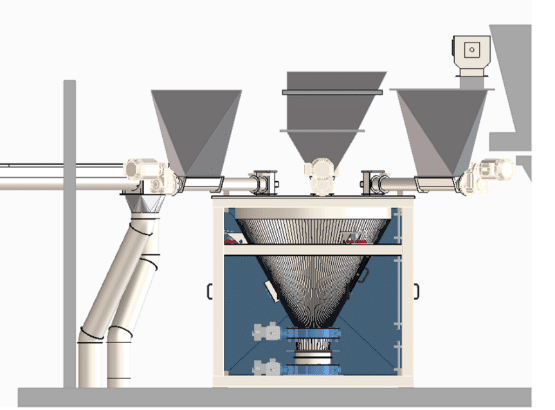
On the drawing the new dosing weigher is showed, complete with dosing augers. The weigher is covered by a transparent housing in order to give the opportunity to look at the system during operation.
The VICTAM scholarships – study the wondrous world of feed technology
Dr R.K. Kwakkel, Wageningen University & Research, Department of Animal Sciences, Animal Nutrition group, Wageningen, The Netherlands
The continuous high demand for well-educated animal nutritionists/feed technologists over recent years has led the VICTAM Foundation to provide scholarships to motivated students who want to study animal nutrition and conduct thesis research in Feed Technology. In this manner the Foundation aims to contribute to the education of qualified individuals in the area of feed processing of raw materials, feed evaluation and feed technology.
Students from Wageningen University studying towards a degree in Animal Sciences are eligible and yearly 2 scholarships will be awarded to the most promising students. In addition, two further scholarships are available for international students who follow the double degree programme in Animal Nutrition of Aarhus University in Denmark and Wageningen University in the Netherlands. As part of the scholarships, students will be required to conduct their major thesis work in the area of feed technology. For this, Wageningen University maintains an infrastructure (CARUS process hall) enabling research to be conducted using the University’s feed processing equipment. Much of the research is focused on development of effective processes for improving feed efficiency for production animals and influence of processing on the nutritional quality of pet foods.
Every year, the VICTAM Foundation selects up to 10 eligible students and will award four scholarships, two for MSc students in Animal Sciences and two for double degree students. The VICTAM Foundation invites students to apply each year between January and the end of March.
More information: [email protected]
Theses
Agata Kozuchowicz – Effects of kibble characteristics on feeding behaviour in cats
Nalin Sanitmatjaro – Effect of sesame straw porosity on the growth of fungal mycelium
Pieter Bos – Impact of steam treatment on protein quality
R Dantuma – Evaluation of different indicators for mixing homogeneity of phytase in broiler feed
Predicting the digestive behaviour of fibrous components in processed pet food
Prof. dr. G.P.J. Janssens, Department of Animal Nutrition, Genetics and Ethology, Faculty of Veterinary Medicine, Ghent University, Merelbeke, Belgium
Fibres are a very diverse family of dietary compounds that have different functions in digestion. Determining fibre types in all their diversity provides highly interesting scientific insights, but implies an amount of labour and cost that cannot be afforded under practical conditions. Yet, the present analytical methods for fibre such as TDF seem insufficient to grasp their main actions in the gut. One of the reasons is that it does not include fibrous matter from animal origin. Therefore, a new Fibrous Matter (FM) method should overcome these issues. In particular in pet food, the animal-derived fibre has been overlooked, whereas this fibre fraction – being protein – is likely sensitive to feed processing conditions. Many proteins are prone to cross-linking and Maillard reaction, depending on the applied processing conditions, and will thus become insensitive to the host’s digestive enzymes, therefore losing their function as protein source, but starting to act as fibres. In contrast, some proteins that are initially resistant to digestive enzymes, become more digestible after processing, hence losing their fibrous character. It is well-documented that these animal fibre fractions are capable of modulating the intestinal microbiome and its fermentative profile. To allow a better estimation of the fibrous behaviour of pet foods, a regression formula will be built that provides a prediction of the real final fibre concentration of a product based on simple, easily available characteristics such as nutrient concentrations (crude protein, FM fractions) and processing conditions (temperature, pressure).
If successful, this prediction formula will allow feed/food producers to monitor and, therefore, target the final fibre content of end products, and in the meantime have a better estimation of the diet’s protein availability.
Revision of the twin screw extruder at Wageningen University’s process hall
Dr A.F.B van der Poel, Wageningen University & Research, Department of Animal Sciences, Animal Nutrition group, Wageningen, The Netherlands
Students of Wageningen University studying towards a degree in Animal Sciences can specialise in feed technology. The University maintains an infrastructure enabling students to obtain hands-on experience with various feed processing technologies and allow students (MSc and PhD) to conduct research using the University’s feed processing equipment. Much of the research is focused on the development of effective processes for improving feed efficiency for production animals and the influence of processing on the nutritional quality of pet foods.
The CARUS process hall contains grinding and mixing equipment, different extruders, drying equipment as well as specialized devices such as an infrared heater and air classifier. The twin-screw extruder (MPF50, Baker Perkins, UK) is one of the most used pieces of equipment in this process hall. Previously used for food production, this extruder is, because of its relatively low capacity (~80 kg/hour), a favourite for students to use in research projects. Extrusion technology is used in MSc education in relation to the production of fish feeds, piglet feeds and pet foods as well as research projects of PhD students.
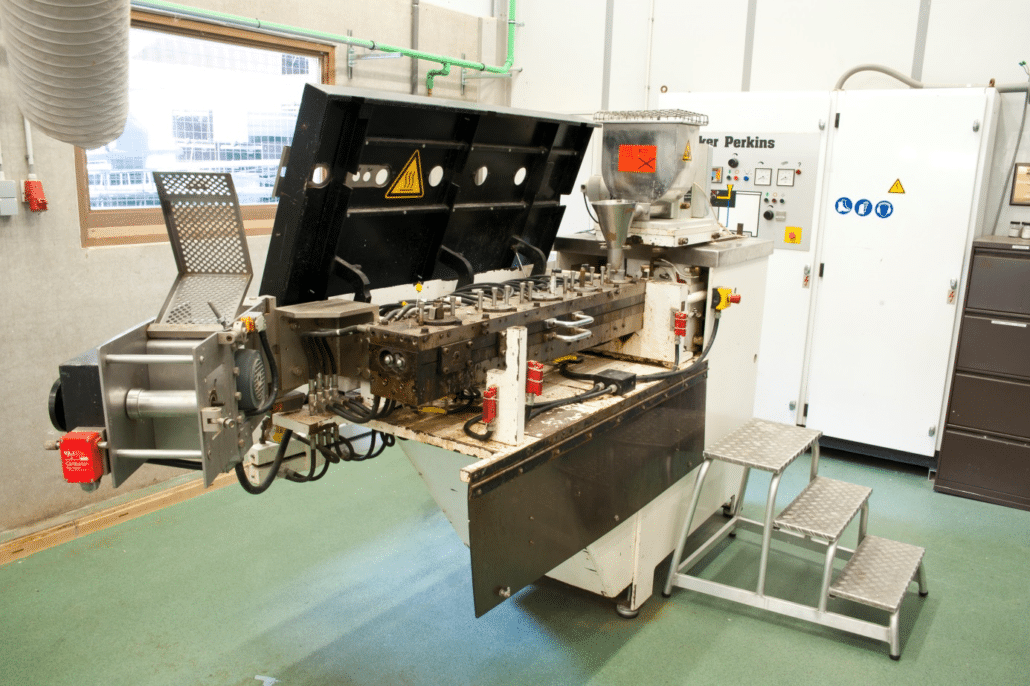
The twin-screw extruder is in dire need of a revision as the cooling elements are malfunctioning and the last sections of the extruder directly before the die are not functioning properly, thereby not allowing the process temperatures to be tightly controlled.
The VICTAM Foundation is providing funds for the revision of the cooling and heating features of the Baker Perkins extruder so that future MSc and PhD students can conduct their research projects using this extruder.
More meat and milk from straw
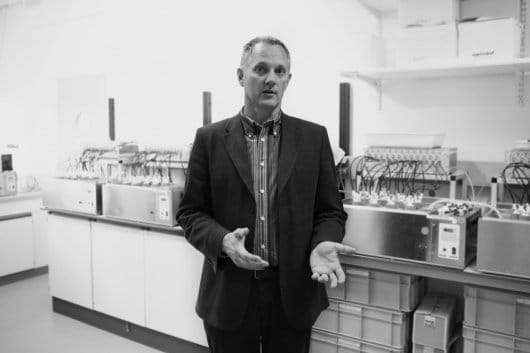
Worldwide, approximately 2.000 million tons of straw are produced per year. The use of straw as a feed ingredient for ruminants is limited due to its low nutritional value caused by a high concentration of indigestible lignin. Wouter Hendriks and colleagues discovered a pioneering method to break down the lignin and increase the nutritive value of straw. The results: more milk and meat.
The VICTAM Foundation financially supports this project.
For more information, please visit: http://www.wageningenur.nl/en/Benefactors/Areas-to-support/Global-Food-Challenges/Producing-more-more-sustainably/Show/More-meat-and-milk-from-straw.htm
Effects of processing on the feeding value of protein-rich feeding stuffs
Technological treatments of feeding stuffs or food and feed ingredients may result in both positive and negative effects on the quality, properties and digestibility of it proteins.
Prediction of the protein nutritional value for men and animal
What chemical property of proteins may give a good prediction of its feeding value? And does a technological treatment of proteins has an effect on that? For example, we do know that a thermal treatment of protein-rich feeding stuffs may damage its amino acids. That may be the reason why these amino acids are not fully digestible or cannot be utilized in the metabolic processes of men and animal.
Technology: changes and risks
In this project we examine which indicators are available to predict the protein nutritional value of routinely used feeding stuffs and of new protein0rich feeding stuffs: for both livestock and pet animals and for humans. Protein digestibility and utilization of amino acids in metabolic processes as well as the effect of technological treatments on protein properties will be extensively examined. Treatments may damage proteins but may also enhance oits feeding value.
The VICTAM Foundation financially supports this project which is projected to be finished on July 1st, 2016.
For more information, please visit: http://www.wageningenur.nl/nl/show/Effecten-van-processing-op-voedingswaarde-van-eiwitrijke-grondstoffen.htm
Sponsoring
The VICTAM Foundation financially supports and/or is a member of the following associations and institutes:
AEBIOM
The European Biomass Association is the common voice of the European bioenergy sector with the aim to develop the market for sustainable bioenergy, and ensure favorable business conditions for its members.
AEBIOM is a nonprofit Brussels based international organization founded in 1990 that brings together 29 national associations and around 94 companies from all over Europe thus representing more than 4000 indirect members including mainly companies and research centers.
For more information, please visit: http://www.aebiom.org/
Feed Design Lab
The Victam Foundation is a partner of Feed Design Lab: the research & education center for innovation and sustainability in the animal feed industry. Feed & technology companies cooperate internationally in an open innovation network to achieve a sustainable animal production chain. To achieve this, a production facility has been achieved where research into new commodities is carried out, where healthy feed can be developed, where new production techniques can be tested and where training activities take place.
For more information, please visit: http://www.feeddesignlab.nl
IFF
The International Research Association of Feed Technology (Internationale Forschungsgemeinschaft Futtermitteltechnik e.V., IFF) was founded on 13 December 1961 on the initiative of the German Association of Feed Industry. The Research Association exclusively pursues scientific aims and is acknowledged as non-profit association by the Revenue Office Braunschweig for the support of scientific aims.
The VICTAM Foundation has supported IFF since its foundation.
For more information, please visit: http://www.iff-braunschweig.de/index.php
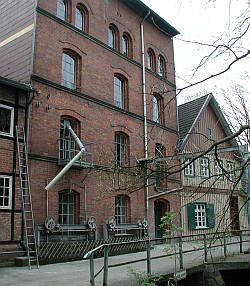
IFIF
IFIF represents the global feed industry as an essential participant in the food chain that provides sustainable, safe and nutritious food. IFIF provides a unified leadership and coordinating role to promote the global feed industry in order to contribute to the sustainable supply of safe, healthy feed and therefore food of animal origin.
The VICTAM Foundation has supported IFIF since its foundation.
For more information, please visit: http://www.ifif.org/
Nevedi
Nevedi (The Dutch Feed Industry Association) protects the interests of the Dutch feed industry. 113 Feed companies and suppliers are associated with Nevedi. The represent 96% of the total feed production for livestock in the Netherlands.
Nevedi came into being in 2000 after the merger of umbrella organisations of the private and co-operative feed manufacturers. Nevedi protects the interests of manufactures of compound feed and premixes, of producers of milk replacers and of suppliers of humid feedstuffs. The activities that Nevedi carries out on behalf of collective interests of its members, can be grouped under four priority areas:
- Sustainability of raw materials
- Healthy and safe food
- Good employership
- Green Innovations
The VICTAM Foundation has supported Nevedi since its foundation.
For more information, please visit: www.nevedi.nl
Wageningen Universiteitsfonds
The Wageningen University Fund has since its inception in 1951 been organising and funding activities that reward and stimulate excellent education and research. This includes stimulating the academic development of students.
For more information, please visit: http://www.wageningenur.nl/en/Benefactors/Service/About-Wageningen-University-Fund.htm
WPSA
The World’s Poultry Science Association is a long established and unique organization that strives to advance knowledge and understanding of all aspects of poultry science and the poultry industry. Its major role is to encourage, and help facilitate, liaison among research scientists and educators, and between those in research and education and those working in the many diverse sectors of the industry. As a non-profit making organization, it relies for its income almost entirely on membership subscriptions, although a number of poultry companies around the world provide generous sponsorship to help meet some of the production costs of the World’s Poultry Science Journal.
For more information, please visit: http://www.wpsa.com/
Young Feed Professionals
The Young Feed Professionals (YFeedPros) are a network of young (under 40) Feed and Pet Food industry professionals who have come together to take up the challenge of sharing knowledge and networking for a feed industry with a future. The YFeedPros have a separate board and hold at least two meetings a year, plus a youth conference and a content-focused event involving an excursion.
The youth conference is organised in collaboration with Nevedi, BFA and BSD students and addresses a topical theme. Meetings focus on networking and knowledge sharing and discuss new developments in animal nutrition. Excursions centre around visits to innovative businesses. Each meeting concludes with networking drinks. Participation in YFeedPro meetings is free for partner companies.
For more information, please visit: https://feeddesignlab.nl/en/yfeedpro/
IFTC
On the 12th and 13th of June 2019, Wageningen University supported by the VICTAM Foundation has hosted the 1st International Feed Technology Congress (IFTC 2019) in Cologne, Germany. This 1st IFTC was held during the 2019 VICTAM International exhibition.
Although for the first time, the Congress brought together some 100 researchers from universities, research institutions and industry. The congress exhibited thematic presentations by international key note speakers as well as oral and poster presentations. Themes of this technology congress were the valorization of raw materials by technology, the current process developments and issues dealing with the results of feed technology for feed formulation.
A ‘Book of Abstracts’ was edited/compiled by Thomas van der Poel and Yvonne van Holland from the Wageningen University/Animal Nutrition group and was presented to all participants. The contributions to the 2019 IFTC were all very interesting and the majority will be published as a special issue of the Journal ‘Animal Feed Science & Technology’ by the end of the year.
Organizing such an event is always a laborious job and therefore we would like to thank the Advisory Board of the Congress being Drs C. Sijssens, Prof. dr L.A. den Hartog (Foundation Victam), Dr R-M. Blume, (IFF Germany) and Prof. dr W.H. Hendriks (Wageningen University). Moreover, we thank the Scientific Committee for their contributions: Prof. dr R. Zijlstra, Dr J. Smillie, Canada; Dr E. Prestlökken, Norway and Dr G. Bosch, Dr J. Schrama, Dr A.F.B. van der Poel, The Netherlands.
We have had a very nice Congress with very interesting presentations and posters. It was good to observe the positive interaction between speakers and participants resulting in a great ambiance of the meeting. Some 110 participants were present from 26 different countries. After the Congress a Workshop was organized about the emerging technological research and education in the near future; a summary of the results of this Workshop will also be published as a short communication in the Journal ‘Animal Feed Science & Technology’.
If you want to experience the ambiance of the 1st International Feed Technology Congress in Cologne, please listen to Leo den Hartog below:
We sincerely hope that you will meet us at the satellite program of this International Feed Technology Congress, at 24 March 2020 in Bangkok. Meanwhile it was decided that the 2nd International Feed Technology Congress will be organized during the Victam/VIV exhibition in Bangkok in 2022.
ASEAN
As the first edition of the ASEAN Feed Summit proved to be successful in 2014, the summit took place again in 2016 during the FIAAP, VICTAM & GRAPAS Asia 2016 event. The summit was organized by Victam International BV, sponsored by the Victam Foundation and hosted by the Thai Feed Mill Manufacturers Association.
The Victam Foundation also sponsored the second ASEAN Feed & Rice Symposium which was also held during the FIAAP, VICTAM & GRAPAS Asia 2016 event.
ASEAN Feed Summit
The second session of the ASEAN Feed Summit was held on Thursday, March 31st, 2016 at the BITEC exhibition center in Bangkok, Thailand.
Held in closed session and chaired by Mr. Pornsil Patchrintanakul, President of the Thai Feed Mill Manufacturers Association, and moderated by Ms. Alexandra de Athayde, IFIF Executive Director, the Summit brought together senior feed regulators and industry representatives from Cambodia, Indonesia, Laos, Malaysia, Myanmar, the Philippines, Thailand and Vietnam.
Topics for this meeting were feed safety, security and sustainability in the ASEAN bloc for 2016 and beyond. During the discussion a number of issues were identified for further potential co-operation, including capacity development for feed safety, efforts towards regulatory harmonization, as well as the need to work with all stakeholders on agri-food chain on common challenges.
It is anticipated that there will be a regular annual Summit/meeting of the new Federation and every second year it will coincide with the FIAAP, VICTAM & GRAPAS Asia event.
The ASEAN Feed & Rice Symposium
The VICTAM Foundation also sponsored the second ASEAN Feed & Rice Symposium and this was held on Wednesday, March 30th, 2016 during the FIAAP, VICTAM & GRAPAS Asia 2016 event in Bangkok.
Dr. La Van Kinh, DDG – President of the Vietnam Feed Association was the chairman for this symposium. A full auditorium of industry VIPs listened attentively to the keynote speeches which were delivered by:
- Dr. Thanabadee Rodsom, Acting Director of Animal Feed and Veterinary Products Control Division, Department of Livestock Development, Thailand.
- Ms. Alexandra de Athayde, Executive Director, International Feed Industry Federation (IFIF)
- Mr. Robin Ong, Archer Daniels Midland Company (ADM)
- Mr Du Van Pham, Senior Agricultural Officer (Rice Expert)
- Dr. Katinka de Balogh, Livestock Policy Officer F.A.O. Regional Office for Asia and Pacific
The topics included issues such as recent developments in the global feed industry, the development of supply of raw materials in the ASEAN region, rice and rice based cropping system in ASEAN countries and Feed & Food Security.


